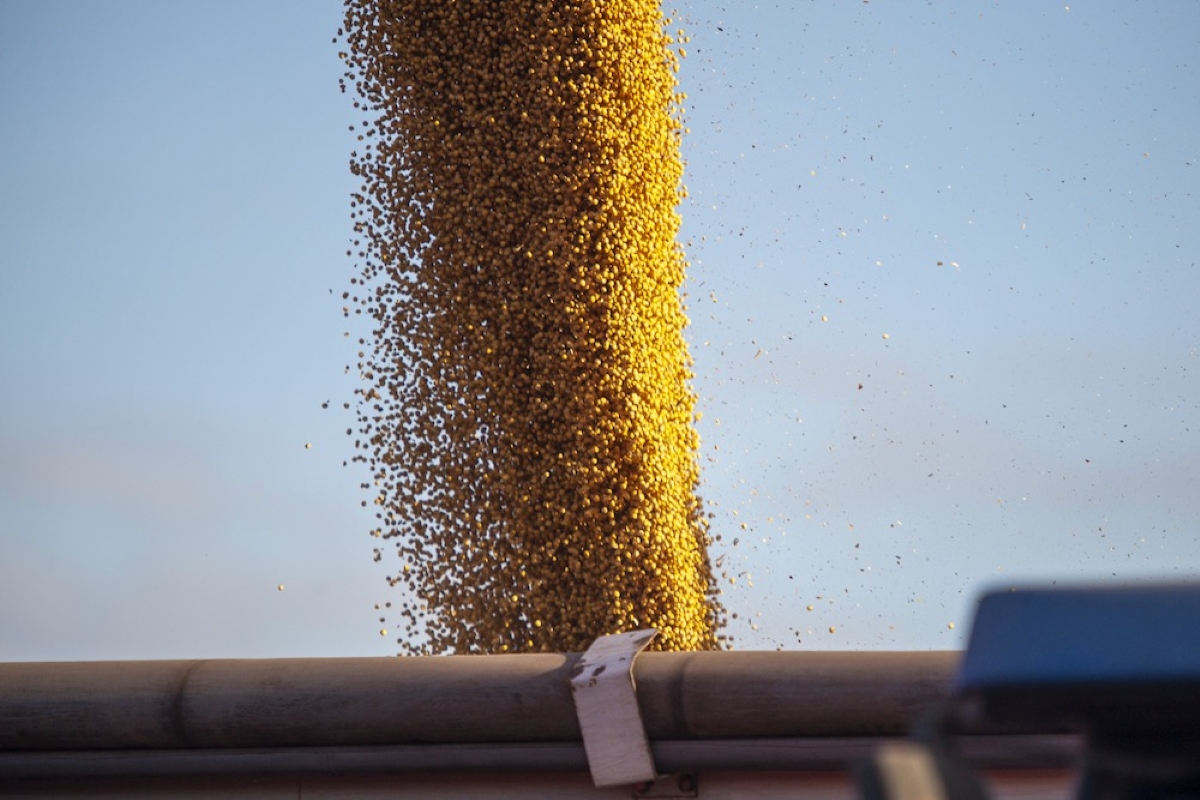Propane shortages for grain dryers and heating fuel in the wake of a strike by Canadian National Railway (CN) conductors and yard workers appear to be “largely manufactured” by the railway, according to the union for the striking workers.
The Teamsters Canada Rail Conference (TCRC-CTY), which represents over 3,000 CN staff in Canada who walked off the job Tuesday, said some trains are still running and “the fact that these trains are not transporting propane is a business decision by CN.”
“While CN is nowhere near operating at full capacity, we think enough trains are running to allow CN to supply Ontario and Quebec with propane,” TCRC president Lyndon Isaak said Friday in a release.
Read Also

Brazil to reap record soy crop in 2025/2026, increase exports
Brazil’s Conab said the country will reap a record soybean crop of 177.6 million tons in the 2025/2026 harvest year, according to data released on Thursday.
“We wonder if CN is choosing not to ship goods like propane in order to manufacture a crisis and force back-to-work legislation.”
The House of Commons isn’t scheduled to resume sitting until Dec. 5, but several industry leaders and politicians have urged an early return to Parliament to deal with the CN strike.
“Recalling Parliament and tabling emergency legislation would show both sides of this dispute that the government is serious about ending the strike,” Andrew Scheer, leader of the opposition Conservatives, said in a statement Wednesday. “That could result in an agreement being reached much sooner.”
That said, the governing Liberals haven’t yet proposed to use back-to-work legislation to end the work stoppage.
Over 1,800 CN locomotive engineers and over 600 supervisors are “free to cross picket lines and continue to operate freight trains every day,” the TCRC said.
Negotiations with CN are ongoing, the Teamsters said Friday, and the union “continues to work closely with federal mediators.”
For its part, CN said in a statement Friday it has “a small pool of qualified managers that only allows the company to operate at approximately 10 per cent of normal service across its extensive 22,000-kilometre-long Canadian network safely.”
That means “very limited amounts of various commodities are moving across the country,” CN said, including container traffic “to keep Canada’s ports fluid to be able to return to normal operations after the strike.”
Some rail traffic, propane included, is already moving, Grain Farmers of Ontario noted in a separate statement Friday, quoting federal Transport Minister Marc Garneau as saying a train with 100 propane cars “has left Edmonton for Quebec.”
However, GFO said Friday it wants to “ensure that there is propane being delivered to those who need it in Ontario as well.”
“We are all looking at huge losses in our businesses if we are not able to dry these grains,” GFO chair Markus Haerle said in a release. “We want the government to extend this support across the country. That is not unreasonable.”
CN on Friday also reiterated its call on the Teamsters “to accept voluntary binding arbitration by an independent third party selected jointly by CN and the TCRC,” or by federal Labour Minister Filomena Tassi, “as a means to end this labour dispute.”
One farm group, the National Farmers’ Union, urged CN to continue bargaining rather than press for arbitration to end the strike. The NFU, in a statement Friday, said it “reject(s) the company’s efforts to use farmers’ hardships as a pressure tactic to avoid bargaining in good faith.” — Glacier FarmMedia Network













